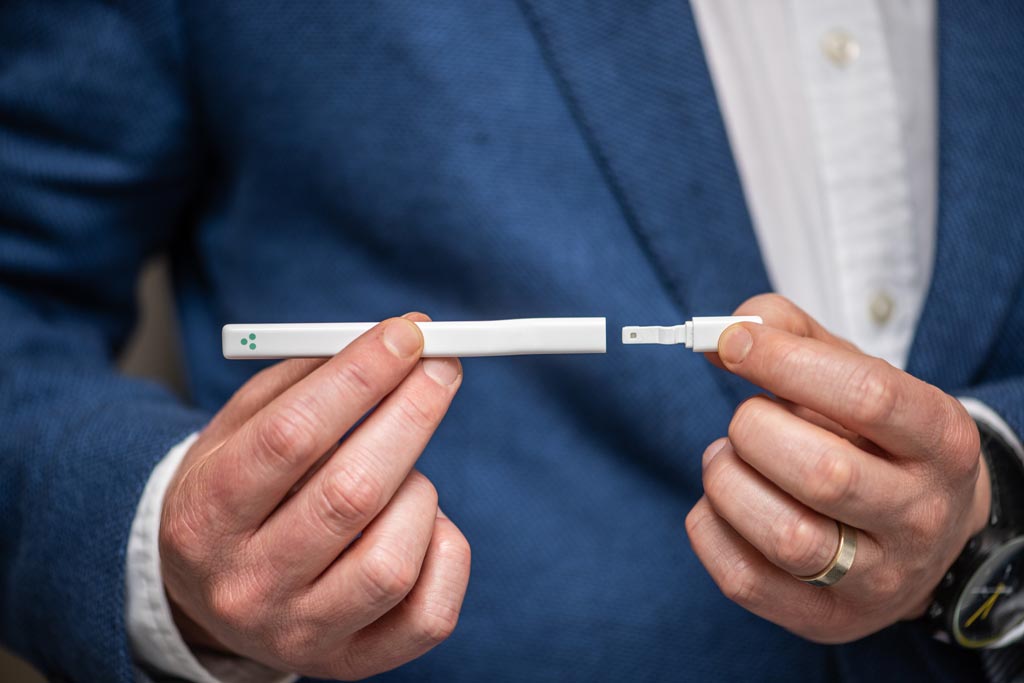Saliva Dipstick Predicts Heart Failure Risk
By HospiMedica International staff writers
Posted on 04 Sep 2019
A handheld diagnostic stick with embedded nano-sensors detects biomarkers that can accurately predict the risk of heart disease from saliva.Posted on 04 Sep 2019
The ESN Cleer (Melbourne, Australia) device, developed in collaboration with the Innovative Manufacturing Cooperative Research Centre (IMCRC; Melbourne, Australia) and RMIT University (RMIT; Melbourne, Australia), is based on sensing technology originally developed at the RMIT Micro Nano Research Facility. A combination of novel nanomaterials, micro-electrodes, and innovative surface treatments were used to create the sensors, which can be tailored to measure biomarkers of interest, from medically recognized inflammatory markers to proprietary panels that improve prediction accuracy.

Image: The two parts of the ESN device (Photo courtesy of Adam R. Thomas/RMIT).
To use the device, the user unsnaps the top, which acts as a consumable saliva specimen collector and holds the biosensor array. The end is licked and replaced into the reusable electronics stick, which controls the analysis. After biomarker identification, the result is sent to a dedicated app installed onto a smartphone or tablet device. The app offers multifaceted features, including disease risk level detection report, immediate doctors communications support, an age/demographic statistical comparison, health tracking capabilities, health and wellbeing related informatics, a community interactive interface, and user feedback capabilities.
“Of the 400 million people who suffer from cardiovascular disease globally, only sixteen% of cases are due to genetic traits. This underlines how much room there is to improve on screening and prevention, which is where this device could have such an impact,” said Leopoldt de Bruin, CEO of ESN Cleer. “We’re really pleased to be able to bring these strands together in addressing such a major global health challenge.”
“Often, blood tests are only conducted after a heart failure episode. Such reactive testing is too late, leaving people with debilitating illness or leading to deaths,” said co-director of the RMIT Functional Materials and Microsystems Research Group, Professor Sharath Sriram, PhD. “The ESN Cleer device is able to measure biomarker concentrations a thousand times more accurately than levels founds in human bodily fluids. Prevention is always better than cure, which is where this technology comes in, adding accurate prediction to the mix.”
Related Links:
ESN Cleer
Innovative Manufacturing Cooperative Research Centre
RMIT University














